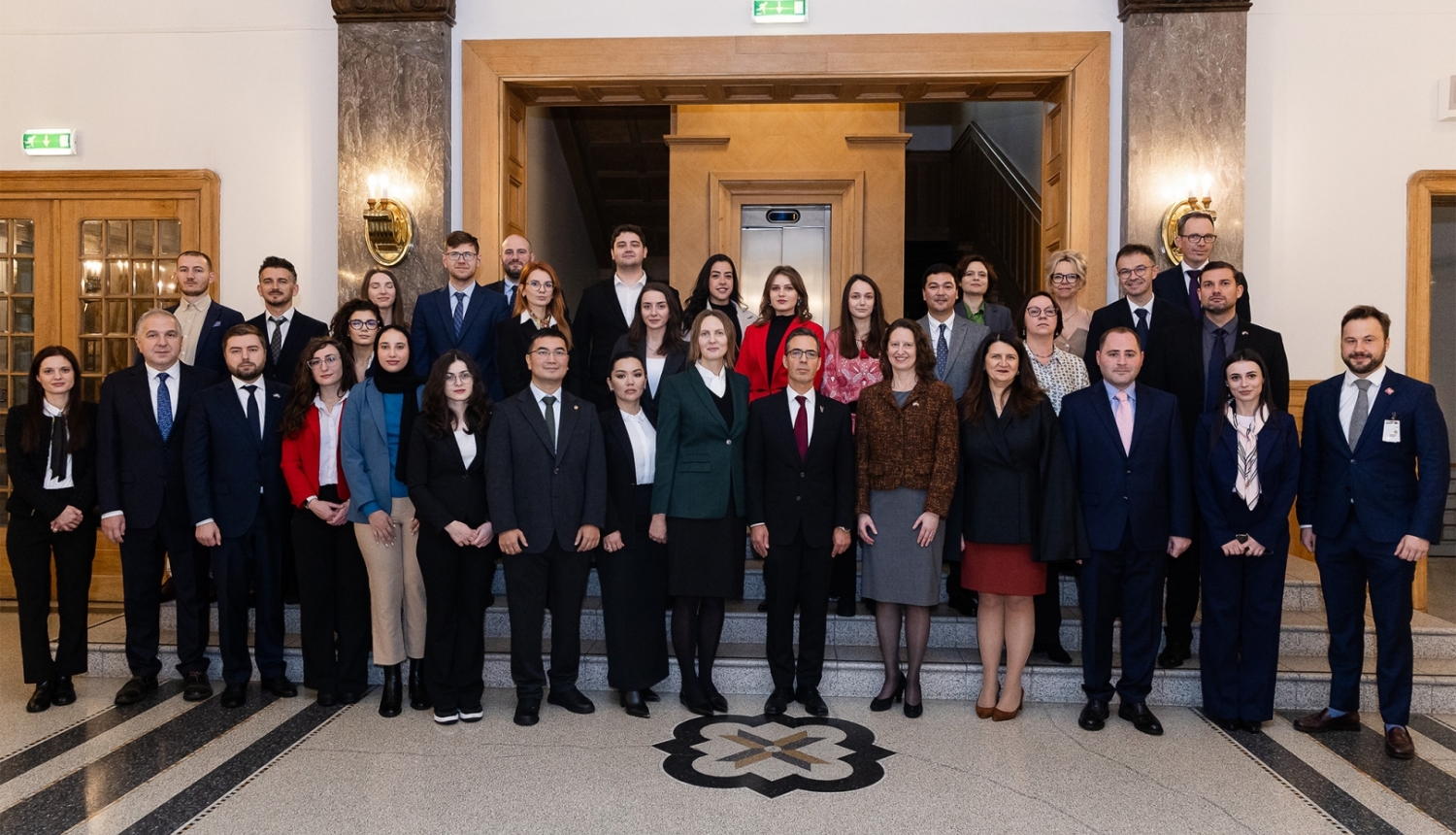Wednesday, 13 November 2024, saw the launch of the 15th session of the Riga Graduate School of Law (RGSL) Intensive Programme in European Law and Economics jointly financed by the Latvian Ministry of Foreign Affairs and the United States of America.
“This year, we celebrate the 10th anniversary of the programme, and I am proud to say that this is the development cooperation activity longest supported of the Ministry of Foreign Affairs. Our goal, as we launched of the programme in 2014, was to share our experience of integration into the European Union – the required reforms, policies and values. Latvia has been a Member of the European Union for 20 years, and our involvement continues in developing an EU project, as strong as possible politically and economically, which will always be our goal,” said the Political Director of the Ministry of Foreign Affairs, Under-Secretary of State, Ivars Lasis.
Ivars Lasis also expresses satisfaction that 647 participants from 20 partner countries have already graduated from the programme since 2014. They will be able to use the newly-acquired knowledge and experience to advance development in their home countries.
He then thanked the team of Riga Graduate School of Law and the contributing countries – Luxembourg, the Netherlands, Norway, Sweden, Switzerland, and especially the United States – for their support to the Intensive Programme.
A total of 25 participants from Albania, Bosnia and Herzegovina, Egypt, Georgia, Kyrgyzstan, Kazakhstan, Kosovo, Moldova, North Macedonia, Palestine, Serbia, Ukraine and Uzbekistan will participate in the six-week programme run by the Riga School of Law.
About the Riga Graduate School of Law Intensive Programme in European Law and Economics
- The Intensive Programme takes place for six weeks in Riga, with in-person attendance, and in Brussels, where over a week-long study trip, the participants meet officials from the European Union institutions. The programme brings together members of public administration from partner countries.
- The Ministry of Foreign Affairs finances the programme from the development assistance policy funds earmarked in its budget, with co-financing attracted from the USA government.




